
The Darrell McClain show
Independent media that won't reinforce tribalism. We have one Planet; nobody's leaving so let’s reason together!! Darrell McClain is a Military veteran with an abnormal interest in politics, economics, religion, philosophy, science, and literature. He's the author of Faith and the Ballot: A Christian's Guide to Voting, Unity, and Witness in Divided Times. He was born and raised in Jacksonville FL, and went to Edward H white High School,l where he wrestled under Coach Jermy Smith and The Late Brian Gilbert. He was a team wrestling captain, District champion, and an NHSCA All-American in freestyle Wrestling. He received a wrestling scholarship from Waldorf University in Forest City, Iowa. After a short period, he decided he no longer wanted to cut weight, effectively ending his college wrestling journey. Darrell McClain is an Ordained Pastor under the Universal Life Church and is still in good standing as well as a Minister for the American Marrige Ministries . He's a Believer in The Doctrines of Grace, Also Known as Calvinism. He joined the United States Navy in 2008 and was A Master at Arms (military police officer) He was awarded several awards while on active duty, including an expeditionary combat medal, a Global War on Terror medal, a National Defense Medal, a Korean Defense Medal, and multiple Navy achievement medals. While In the Navy, he was also the assistant wrestling coach at Robert E Lee High School. He's a Black Belt in Brazilian Jiu-Jitsu under 6th-degree black belt Gustavo Machado, Darrell Trains At Gustavo Machado Norfolk under the 4th-degree black belt, and Former Marine Professor Mark Sausser. He went to school for psychology at American Military University and for criminal justice at ECPI University.
The Darrell McClain show
Bullets Don't Ask Who You Voted For
Charlie Kirk’s assassination has shaken America. A 31 year old conservative commentator gunned down while addressing students in Utah now joins the tragic roster of public figures lost to violence. But what may be just as troubling is our divided response, with some mourning, some weaponizing, and some celebrating. This episode reflects on the crisis of political violence and the quieter, yet significant, civilizational fault line of delayed marriage. Can we still see one another as human, and can we rebuild the family structures that sustain civilization? The facts are stark and sobering. On September 10th, Kirk was addressing a crowd of 3,000 at Utah Valley University when a shot rang out from a rooftop 400 yards away. The shooter, identified as 22 year-old Tyler Robertson, struck Kirk in the neck. Despite medical intervention, Kirk did not survive. But what followed his death may be equally troubling, a nation seemingly unable to unite even in condemning political violence.
Media coverage splintered along predictable lines. Mainstream outlets reported clinically on the investigation, while conservative voices called Kirk a martyr, and some progressive corners focused on his controversial rhetoric. More disturbing were the celebrations from corners of the internet, people cheering the death of a man simply for what he believed. This response reveals our collective failure to hold two truths simultaneously: that we can despise someone's politics while still grieving their death as a human being. Beyond Kirk's assassination, this episode explores another quieter but equally serious crisis, the postponement of marriage in American society. As Albert Moeller argues, delayed marriages lead to declining birth rates, which threaten demographic stability and cultural continuity. From Europe to Asia, nations face population collapse, with America buffered only by immigration. This represents not just a personal choice but a structural problem shaped by economic pressures, housing costs, and a culture that prioritizes career over commitment. What connects these seemingly disparate topics is a fundamental question about our shared humanity and future. Can we see beyond our political differences to recognize each other as fellow citizens? Can we rebuild the foundations of family and community that sustain civilization? The answers will determine whether we step back from the abyss or continue our dangerous descent. Join us as we navigate these difficult waters, seeking not easy answers but honest reflection on where we are and where we might go from here. Subscribe and share your thoughts as we work to understand these challenging times together.
Welcome to the Darrell McLean show independent media that won't reinforce tribalism. We have one planet. Nobody is leaving. So let us reason together. Friends, we need to talk On today's show still under the shadow Of what we were under last week, the kind of shadow that just doesn't dim a room but it creeps into the bloodstream of a nation.
Speaker 2:So, if you have not been aware, last week, on a college campus in Utah, charlie Kirk, 31-year-old, founder of Turning Points, usa, one of the most prominent conservative commentators in America, was shot and killed while speaking to a crowd of students. A rifle, a rooftop and a 140-yard shot across a courtyard. He was rushed to the hospital and he did not leave. So now let me start like this this isn't about whether you liked Charlie Kirk. This isn't about whether you despised him. This isn't about whether you agreed with his politics, his provocations, his rhetoric or even his brand of conservatism. Death has a way of cutting through all of that. A bullet doesn't stop to ask who you voted for, and because of that, the question before us is now isn't just who was Charlie Clark, though that will matter, it is. What does this event, what does his assassination mean for us, the people who have kept living together and who will have to keep living together in a fragile, fragile republic. Here's what we know.
Speaker 2:On September the 10th, charlie Clerk was on stage at Utah Valley University as a part of this America Comeback Tour. The audience was around 3,000 strong. In the middle of the event, a shot rang out from a rooftop about 400 yards away. He was hit in the neck. He was rushed to a regional hospital and he was later pronounced dead. The shooter so far has been identified as a 22-year-old, tyler Robertson, who was arrested two days later. The FBI says his DNA was found on a weapon and other items near the rooftop. Robertson has not cooperated with investigators. Early reports suggest he may have had an obsession with Kirk, some personal fixation mixed with a fog ideology, but a clear motive has not yet been confirmed. Authorities are treating it as a political assassination. Now Donald Trump, who remains the most polarizing figure in American politics, announced that Kirk will receive the presidential ballot of freedom posthumously, and flags across the country have been ordered to be put at half staff.
Speaker 2:Now here's the media divide. If you want to know where the real story is, don't just look at the crime scene. You have to look at the coverage and we have to look at how the media ecosystem responded, because the killing of Charlie Clark was the only tragedy. It was the test of how divided we actually are. Mainstream outlets like the Associated Press, cbs, rutters, stuck to the script the what, when, where, how. Their term was factual, cautious. They talked about investigations about the shooter, about the spreading of videos online. The Los Angeles Times and PBS warned about how graphic footage of Kirk's shooting ricocheted across TikTok and X before moderators could catch up. Euronews pointed out how social media turned a moment of violence into a viral spectacle. On the other hand, conservatives meet a lean hearted to symbolism.
Speaker 2:Some called Kirk a martyr martyr. Some said outright we are at war. The figure of blame pointed at the radical left, at universities, at a culture of disdain for conservative figures. And then you had critics, the communists, the cultural commentators, people like uh camu bell in the san San Francisco Carnival, arguing that empathy shouldn't become performance. That Kirk himself revealed in the combative rhetoric that now complicates how people react to his death.
Speaker 2:The Guardian ran reflections that stretched back to the assassination of the 1960s, asking if this was the beginning of a darker phase in American life. And the watchdogs at CBS News, axios Wired, calling for the failures are calling out the failures. I just have AI search engines that misidentify suspects and social platforms that let conspiracy theories run wild within hours. So the coverage itself became a mirror and a reflection of who we are and why we are so fractured. So let's be clear when someone is gunned down in broad daylight, it should be the simplest moral reflex in the world. We mourn the dead, we condemn the violence, we let justice take its course, but we do not live in a country where moral reflexes are simple anymore. Instead, we saw a celebration from some corners of the Internet. We saw gloating memes, cheers at death of a man for what he believed, and we also saw anger, despair and cause of retribution. On the other side, universities began firing employees for insensitive posts. A professor in Colorado was suspended. A staffer at Virginia School District lost her job.
Speaker 2:It's not just about what you think anymore. It's about what you tweet, what you like, what you say in the heat of the moment online. In some ways, the reaction became a second order. Violence played out in our careers, reputations and livelihoods. So here we are.
Speaker 2:A political assassination has exposed not just the fragility of public safety, but also the fragility of our public speech. Of course, sometimes when we see things like this and it's so raw, I say we need to go back and look at the history because we even though America is a very young nation we have been here before the 1960s carried the funerals of John F Kennedy, martin Luther King Jr, malcolm X, robert Kennedy, medgar Evers all inside of half a decade. Back then you heard about killings on the radio, on Walker Concrite television broadcasts. Today you see the blood in 4K resolution on a loop feed to your phone before the body is even cold. Violence isn't new. What's new is the speed and saturation, and what's dangerous is the desensitization when assassination goes from unthinkable rupture to something you can scroll past on your way to a cooking video.
Speaker 2:Our republic is losing more than one life. It is losing its collective gasp, its reverence for the sacredness of human life. So Charlie Kirk's death is a raw search test, as they call it. For some, it proves America has become too tolerant of hatred for others, for left and right. It's a good reminder of how toxic left and right wing rhetoric can be sometimes. It's a reminder of how it poisons the well and makes enemies for still others. It's a reason to retreat from politics altogether to say this country is lost.
Speaker 2:But I'll tell you what I think. Actually it shows and this is a deeper analysis that I'm working on we are terrible at holding two truths together. We are terrible at saying I despise your politics but I grieve your death. We are terrible at holding two truths together. We are terrible at saying I despise your politics but I grieve your death. We are terrible at saying I found you wrong but I will not cheer for your execution. We are terrible at remembering that disagreement is not war, that argument is not assassination.
Speaker 2:We don't know yet why Tyler Robertson pulled the trigger. Maybe obsession, maybe ideology, maybe both. But whatever his motive is, the effect is the same. On another American is dead because violence was easier than speech. So where does that leave us? First, in the state of mourning, because, however you slice it, a 31-year-old man is gone and his family is left shattered. That alone should be enough to quiet the noise for at least a breath. Second, we have to deal with the state of reckoning, because political violence doesn't happen in a vacuum. It happens in an atmosphere, an atmosphere of demonization, of zero-sum politics and of permitted outrage and of course outrage is permanent but selective and, third, in a state of choice, because we can choose whether this becomes one more step down into the abyss of rhetorical hate. One moment will be paused and say not like this.
Speaker 2:So, friends, the assassination of Charlie Kirk is not just a headline, it's actually a fort in the road. Do we, as a country, double down on language of enemies and martyrs, or do we remember what it means to be fellow citizens, even in the fiercest of disagreements? So, over the next few hours, or however long this takes, I'm gonna put apart, I'm gonna try to work this through. The shows are are going to be a bit more longer, because I think it's what's needed at the moment. I'm going to have to talk about a lot of things from a lot of different angles, so we're going to be, for the most part, putting out content every day again until we get back to some sort of normalcy, because let me just tell it to you plain, I think, is what I need to do. Um, if we double down on the language of enemies, if we do this whole who's a martyr and who's the citizen and who's not a citizen and we have a fierce disagreement about everything, I don't know where we get the fact of the investigation, the media response, the role of technology and the moral responsibility of those of us who believe in civic life and who are not to be ruled by a gun. But this is just the introduction, and it's even in the introduction. It still sits heavy because, whether you loved somebody or you hated somebody, or you even never heard of the person before last week, charlie kirk's death is still a warning flare in the night sky. Ignore it and it darkens, it only grows deeper, and we will, will, will do some more work on this at the end, and but I have it and I and I'm it's, I have to a lot say about it, but I'm going to try to connect these dots. You'll see where I'm going, and so I'm going to step away from that for a moment the noise of the daily news cycle, the blood, the outrage, the endless chase of headlines and take up something a little quieter but, in its own way, just as deadly serious.
Speaker 2:Albert Moeller, the Southern Baptist thinker, put it bluntly last week Delaying marriage is not just a lifestyle choice. In his words, it is a civilizational crisis. Now some of you may scoff to civilizational crisis, because civilization doesn't collapse just because 20-somethings want to live in a studio apartment and date a little longer. But stop and think about it. From the long arc of history, civilizations are built on GDP charts and not campaign slogans. They are built on families. They are built, more often than not, on marriage. Remove that pillar or even weaken it, and I'm starting to see how this whole whole structure stumbles Now.
Speaker 2:Moeller's argument is simple the later people marry, the later they have children. If they have them delay long enough, and birth rates collapse. Birth rates collapse and so do populations. Populations can collapse and so does the cultural memory, the sense of the continuity that ties a people together across generations. So you have to look at Europe, italy, spain, germany, all facing democratic winters. Japan has entire towns where the average age is over 60 and the sound of school bells have been long, long gone. China, once boasting of a billion strong, now faces the fastest population decline in modern history. The united states has buffered a little, and the crazy thing about that is that's purely just because of immigration and by our slightly higher fertility rates. But the trend line is unmistakable Fewer marriages, later marriages, fewer children.
Speaker 2:Now, from my chompskin lens, I'm going to say it this way because, while Moeller sees it as a theological crisis. I see it as well. I also see it as a structure problem. It as well. I also see it as a structural problem.
Speaker 2:People don't just wake up one morning and decide to reject marriage. They are shaped by forces above them economic, political and cultural. Why are people postponing marriage? Crushing student debt that makes it feel irresponsible to start a family, housing costs that locked young couples out of stable neighborhoods, wages that have stagnated for 40 years while the cost of raising children has skyrocketed. A culture that sells career as salvation works first, family maybe later. And an entertainment, an entertainment economy that keeps adolescents stretched into mid-30s, where you can rent friends, rent experience, rent intimacy, but never have a covenant. Now, that's not just a personal choice. That's a system designed to delay commitment, because delayed commitment keeps people payable better consumers, better workers, less rooted in anything and therefore less resistant.
Speaker 2:Now I do have not just a right now view. I have a historical lens to back this up. If a civilization rise and fall on family structures, that's my claim. History backs this up. If a civilization rise and fall on family structures, that's my claim. History backs this up.
Speaker 2:When rome was collapsing, one of the signs was a breakdown of family life. Aristocrats put off marriage, avoided children, pursued pleasure. The empire survived a long time, and then it didn't. Empire survived a long time, and then it didn't. Conquests and democratic core started to hollow out. The same was true in the state of late stage Greece, and the same is true now in parts of Europe where governments pay people to have babies, and it still doesn't move the needle. Civilization is not only lost on a battlefield. Sometimes it just fades one post-bond wedding at a time. Now Mueller insists on this often. I hear him talk about it regularly, and I think he is right, because I think that Mueller's instincts is correct, his instincts that marriage is not just sociology, it's theology.
Speaker 2:In a Christian vision, marriage is a covenant, not just a contract. It is a sign that human beings were not made to be autonomous fragments but actually to be bound together in promise. Autonomous fragments, but actually to be bound together in promise. And yet the modern world has somewhat redefined marriage as a lifestyle accessory, something that you add on once your career is stable, once your travels are done, once you've found yourself. So your actual covenant gets downgraded to a contract, and a contract is infinitely delayable.
Speaker 2:Now, from this angle, postponing marriage is not neutral, it's somewhat rebellion. It says I will not bind myself until I have maximized myself. So let me put it plainly you know, we're raising generations that know how to hook up but not how to commit. They know how to swipe right, but not how to walk down an aisle. And the cause of that isn't just loneliness, it's social fragility and societal death and societal death. Every time someone says I'll wait to marry until I can afford it, what they're really saying is the economy is more powerful than a covenant. Every time someone says I want to get my career in order first, what they're really saying is my job owns me more than my promises will. Now, that's not their fault entirely. That's the world we built for them, but it's a world that cannot sustain itself forever. Notice also who marries and when the upper class, the elites, still marry, still form stable households, still pass on wealth and still are able to have stability to their children, it's the working class and the poor who face the heaviest burdens the broken homes, delayed marriage, fewer children, more work, less family connections, more isolation.
Speaker 2:Now I would argue that this isn't just about family values, it's about inequality. Marriage itself has become a classmaker and that gap only widened if nothing changes. So here's the choice Either we take seriously that marriage matters and covenant-filled civilizations, or we drift into a demographic ice age, already visible in Europe and Asia. This isn't about forcing anyone to marry. It's about telling the truth. If people will not reproduce, if people will not bind themselves together across generations, then their culture will disappear. Their culture will not last. So Moeller sees this as a theological truth. I would like to assume that Chomsky would say it's a structural reality. I say it's both, and ignoring it will not make it go away.
Speaker 2:We are at a civilizational fault line and, unlike most of the headlines, this doesn't shout at you, it whispers. You don't hear the collapse of birth rates and the breaking news. You only see it when it's too late, when the schools close, when the neighborhoods are empty and when the language itself begins to fade because there aren't enough children left to carry it on. Postponing marriages may feel like a private choice, but it is one of the most public acts a civilization makes. If Moeller is right and I do think he is on this then this isn't just about individuals. This is about whether we still believe in a future.
Speaker 2:Now we are living through a moment where public figures have been murdered, died, not passed, not lost, murdered. And that word matters, because murder isn't natural, it's an actual, it's an interruption, it's a glitch in the system, it's theft, speaking on stage in Utah who was gunned down and already the noise machine has swallowed him Already. Hot takes memes, modern narratives, the gleeful celebrations, the drowning out of truth that should stop us in our tracks. A human being was killed and we talk about this in a way that I think we have to resist the pull toward abstraction, because once someone becomes only a symbol, we stop seeing the blood, we stop seeing the grief, and history shows us that this is nothing new. Think back to the 1960s. Martin Luther King Jr Shot on the balcony in Memphis. Maker Everest murdered in his own driveway in Jackson, mississippi. Malcolm X gunned down in Harlem as his daughters watched.
Speaker 2:Now, everyone I just mentioned these men were lightning rods, loved by many, despised by others. Their words unsettled the comfortable. But whether you saw them as prophets or agitators, that fact is unimportant. The fact that is important is that they were flesh and blood, that they were husbands, fathers, sons. A murderer ripped them away. What did the country do? Too often, it turned them into icons, martyrs for the left, villains for the right, and in the process, the human weight of their loss was somehow eclipsed Fast forward. Ronald Reagan survived his attempt, but others didn't. George Wallace shot and left paralyzed. And now Kirk? Agree or disagree with them, they were targeted not as men but as a symbol.
Speaker 2:Someone decided that a bullet was better than an answer or than a ballot, and again the temptation is the same Erase the humanity, amplify the ideology. If you kill them, call them heroes If you didn't shrug or even celebrate. But that's not honest. The honest part is a wife lost a husband, a family lost their future. And let's not forget those in the supposed who. We would kind of, I guess, consider the center.
Speaker 2:John F Kennedy got down in Dallas. Robert F Kennedy in a hotel kitchen in Los Angeles. Abraham Lincoln, watching a play in Forest Theater, struck down in the middle of an ordinary night. These weren't fringe figures, they weren't the left's radicals or the right warriors. They were in many ways the faces of what is actually mainstream America. And still they fell.
Speaker 2:Violence doesn't check party lines. Murder doesn't ask where you sit on the spectrum, it asks only who has become a symbol big enough for me to hate what we seem to forget at this moment. Each time the nation has wrestled with grief and division, and each time people reach for the easy road idealize or demonize. But the harder road is to sit with the truth that before they were public figures, they were human beings, and that's what I don't want us to forget now. So Charlie Kirk wasn't just a conservative influencer. He was a person who could laugh, who could love, who could bleed. His murder isn't just a political movement. It's a human wound and responsibility cannot be lost. We need responsibility in this moment.
Speaker 2:So how do we respond? With restraint, with honesty, with humanity. It means refusing to cheer death, even of those who we oppose. It means refusing the weaponizing grief into vengeance. It means remembering that if we don't draw a hard line against murder, then every ideology isn't just waiting its turn. And when I mean it's just waiting its turn, I'm saying that every ideology is waiting its turn to bury its own. Think about it this way Somewhere right now, a mother is crying. Somewhere right now, friends are replaying old messages. Somewhere right now, someone who loved is asking why wasn't I there to stop it? That's the human scale and it should cut through the noise, the noise. So I want us to be reasonable in the moment, to resist the easy flattening of a man into a symbol, to speak honestly about politics, yes, but also remember humanity, because if we lose that, if every person becomes only a pawn, a meme or martyr, then the bullets will keep flying and each shot will echo longer than the last. Murder is not the end of life. It's a mirror. It shows us who we are by how we respond, and I pray we respond as people who still know how to see each other as human, as people who still know how to see each other as human.
Speaker 2:And because a lot of it will be missed, I want to give us some context, this murder of Charlie Kirk. It joins a tragic roll call Medgar Evers, malcolm X, martin Luther King, fred Hampton, which we have to talk about. The elephant in the room that last name, if you haven't figured it out. Robert Kennedy, huey Long, alan Berg, harvey Milk, george Wallace, wounded but scarred for life, left right, center. Nobody spared, and not just in the distant past, in our own era. Gabrielle Griffiths, critically wounded in 2011. She lived not what she used to be six people dead around her. Craig Greenberg in Louisville, mayor candidate nearly assassinated in 2022. Paul Pelosi beaten nearly to death in his home in 2022. Donald Trump surviving two assassination attempts in 2024. Melissa Hortman and her husband murdered in their Minnesota home in 2025. Charlie Kirk cut down on stage at 31.
Speaker 2:The murderers of the left, the right, the center all testify to one truth Violence is no respecter of ideology. Each time we let the murderer become only symbols, we lose a little more of our humanity. Charlie Kirk's murder is another mirror. What do we see when we look into it? Mirror, what do we see when we look into it? Are people ready to demonize? Are people still able to stop and say a life was taken and I will not celebrate that choice is actually yours and it will echo long after the news cycles move on. When I think about Charlie Kirk, I think about him in a long history of People who use rhetoric to get a point across.
Speaker 2:I'm going to be talking about this specific issue In the context of different fields For a while. This part Is me talking to you in this voice. There will be other issues Surrounding this that I may have to talk to you in a strategic voice. There may be some times where I have to talk to you as a counselor, and there will be other times I have to talk to you in sheer cold, robotic data. Other times I have to talk to you as a historian, and other times I have to talk to you as a friend, and other times I'm going to have to pull from the deep root of our different theological, religious and spiritual traditions.
Speaker 2:What I was saying in the beginning is the death of Charlie Kirk has affected me greatly because it has put me in a position where I have to do something that I did not want to do, but I have no choice. I have to step up and I have to fill a void that has been left by the death of so many. It's been a very tough year, and you always look around for a hero, look around for somebody to come in and save us. You see so much darkness and you just want to have Superman or Black Adam or Spider-Man come in and fix it. And what has been tugging at me in a profound way and I have to answer the call is the country needs people who see the dark and work hard to spread the light. For the, for the. For the time being, there will be more posts about more things all over the place. We will be discussing multiple issues from very different angles. I'll be having very different voices on having very important, serious conversations. Like I say all the time in my slogan, we have one planet. Nobody is leaving. Let us reason together.
Speaker 2:I want people who are upset with Charlie Kirk on the traditions that he did not stand under. I want you to think about him in the context of some of the names that I have named, especially a name like the Honorable Malcolm X, who was a different religious tradition than me, who saw problems. He spoke vigorously, didn't always use the correct language, but he used the language that he knew at the time. His life was cut short the exact same way, killed at a rally, at a speech in front of his wife and children. Charlie Kirk, on the other side of the aisle, killed at a rally in front of his wife and his children. History does not repeat, but it often rhymes. So what I'm going to do? Because there's a lot of voices who want to do another thing and they want to point out all the awful things that Charlie Kirk may have said. I can acknowledge that, but the way I'm going to end this is by letting some good things speak. At least give the man room for being a human being Our blacks from the intellectual past.
Speaker 2:Tonight, the person who will get the last word will be the late Charlie Kirk. We have a lot of work to do. I'm going to be doing a lot of work with you. Thank you for tuning in. I have a plethora of questions that I'm going to be answering on another episode. I'll see you on the next episode. Try your best to not light gasoline on this fire. So in this video that you're going to play, there's going to be a few of these. A young woman is coming up to Charlie because he's wearing a hat that says ICE, and so she responds to him in a violent manner and she snatches the hat. And listen to his response.
Speaker 3:ICE Integration constant enforcement. Hey, don't talk about that what are you doing? Don't, let's have a conversation. No, 100%, guys, I'm not going to press it. Thank you, see, I'm not going to. I would have been pissed if I had worn a yellow board. No, no, I can't believe it. Hey, put it on mine. We got to go shortly. I got a question. Sure, what was?
Speaker 4:your name again. I'm sorry, I don't think I told you my name is Mark.
Speaker 3:Nice to meet you. Why are you together? Why are you together? Okay, I've been asked that question a lot. First of all, the question should not even have to be asked. But when people stop talking, really bad stuff starts. When marriages stop talking, divorce happens. When church starts happening, they fall apart. When civilization stops talking, civil war ensues. When you stop having a human connection with someone you disagree with, it becomes a lot easier to want to commit violence against that group, whether it be the great genocide, the horrible genocides of the last 100 years. People stop talking with each other because they lose their humanity. I wish we could be here without having my hat thrown off and stuff, but what we as a culture have to get back to is being able to have a reasonable disagreement where violence is not an option.
Speaker 2:Now, I 100% agree with that sentiment. I 100% agree that young woman came up to him, provoked him to violence and he did not respond in violence, he did not press charges, he said what he said. Here's another one, which is somewhat eerie the topic, but just listen to this one.
Speaker 3:I have 30 seconds left to live. I'm dying from a gunshot wound, but what would?
Speaker 4:you actually want to tell me if I have 30 seconds left?
Speaker 3:to live. Boy, you got 30 seconds. In 30 seconds, you're about to meet eternal judgment and there's only one way that you can get bailed out of that, and it's not all the good things you did or the moral scorecard. It's whether or not you have Jesus Christ as your Lord and Savior. Amen, and that's the only thing that's going to matter. And so you've got 10 seconds left of dying from a gunshot wound and you ask the question who is Jesus Christ?
Speaker 3:And the answer to that singular question who is Jesus Christ is the most important question for everyone in the audience, not how much money you have, not how much good stuff you do, it is is jesus christ. You might say, oh, jesus was, you know, a teller of good tales, or jesus was a good person, or jesus was a historical figure. None of that's going to cut. It's whether or not you repent and you ask christ to come in as your lord and savior. That's the only thing that will save you from eternal death. Hello, you brought a sign up, I'm sorry. Did you bring a sign up?
Speaker 4:yeah, I did so my name is eric, I'm 70 years old. I've been a born-again evangelical christian for 35 plus years. Praise god, worship here in the valley with a bunch of uh. I was on worship teams in the valley for quite a few churches, but the holy spirit brought me here today to prove you wrong. Okay, and so what the Holy Spirit has led me to do is to try to explain to you that I don't think you're a good godly man. Okay, and this is why, because what a godly man does a good godly man does is stand up for people. He stands, he stands up for people, he stands up and even fights for people. Okay, and I don't believe you stand up and fight for people. Yeah, you use your mouth. And all these kids You're good at all these kids.
Speaker 3:And I didn't think you were going to. Are they people? Do I fight for them? Do I fight for them? And how dare you say that, after I just shared the gospel to nearly?
Speaker 1:2,000 people here at Boise State.
Speaker 4:University, because there's a difference between someone who just shares the gospel and someone who's a godly man. I can explain the difference to you right now.
Speaker 3:Okay, tell the world why I am not a godly man.
Speaker 4:Because you only stand for people who are white, christian and male.
Speaker 3:You've got. Where's my brother up here? Where's my man? Look at him. You've got to come up here. Come up here, come up here. Come up here. Get over the gate. Come over the gate. Look at this guy here. Look at this. Yeah, right to the mic.
Speaker 2:So, for context, the person that comes that he calls up is a black male. That agrees with what Charlie Kirk is saying.
Speaker 3:Stand for me, we're good. Wait, I only stand up for white. Is that a white man? Can you look at him, please? Look at him. Is that a white man? Is that a white man? You said I only stand up for white men. He's got dreads, Are you, Are you? But you just libeled me in front of 2,000 people saying I only stand up for white men, and I got a brother in Christ right here. How dare you say something like that? I'm ready.
Speaker 4:If you quit messing around, I'll prove it to you right now.
Speaker 3:Messing around, bringing up a person of color, messing around isn't that your whole shtick? Are you ready?
Speaker 4:Okay, are you ready? So, okay, so, yeah, I'm ready. So the holy spirit, the holy spirit specifically brought me here, because this is the idaho, this is the old west, right? The holy spirit brought me here to challenge you to a gentleman's fist fight, right here in front of this old crowd.
Speaker 3:Now look listen, listen, listen, listen. No, I would hate to hospitalize you in front of 2,000 people.
Speaker 4:But see see, the difference is I'm a 70-year-old man. I haven't been in a fight in like 60 years. However, Does a godly man?
Speaker 3:come up here and yeah, does a godly man challenge another to a duel?
Speaker 4:Okay, so hold on, I'm serious about this. Can I speak, all right? So look, I'm telling you I'm not up here, just fight for me. The Lord has come up to me to ask for fight for people that you dis all the time, like women. The Lord brought you here to speak to you Women, gay people, trans people, immigrants, people of color, people of different religions.
Speaker 3:My man.
Speaker 4:Immigrants, refugees. So look you seriously. I'm serious. You can have your goons. They can search me. I'll sign a waiver. I'll let you take the first punch. Let's go, Put up or shut up, charlie Kirk, you know what?
Speaker 3:So, first of all, it says very clearly in the Bible that we shouldn't harm those that are worthy of protection, and you obviously are. You're just worried I'll kick your. I'm Medicare age, but let's play this out despite the obvious fact and you and I both know who would win this duel However you are, hold on a second. This is a great embodiment of the American left. You can't debate, so you want to go to blows. You can't. The only thing that is preventing us from this country from going to civil war is debate and dialogue, and you don't even want to have debate. You want to go and you want to wrestle like a seven year old.
Speaker 4:Who here is actually dividing the country?
Speaker 3:So it's a man's fistfight. You know what that is right Again, I would like to think that we are elevated above trying to go have a fight in the streets or a fight in front of 2,000 people. In fact, a mark of civilization is that we don't have to go to blows or bullets, that we can have discourse and debate, but yet you're inviting that and you know that out here in the West that's a bunch of bulls. Oh really, you don't debate out in the West.
Speaker 4:Real men stand up for what they believe.
Speaker 3:You guys don't dialogue in the West. Come on man.
Speaker 4:Look, I know how about this.
Speaker 3:Why don't you, since you're a 70-year-old aged elder and you want to have a fist fight with a 31-year-old, why don't you tell me what a woman is?
Speaker 4:See, I am not here to debate you, I'm here to prove you wrong. Prove you wrong.
Speaker 3:Prove him wrong. So either put up or shut up. I'll walk away, you tell me right now, acting as if someone who is very desperate, who is clout chasing, and we won an election we are going to remain peaceful while the left promotes violence.
Speaker 3:We are going to peace because, as Christ, our Lord, said, blessed are the peacemakers, for theirs is the kingdom of heaven. Thank you, sir, and get out of here. I think Lamar Jackson is getting the backlash, maybe because you're not allowed to retweet a conservative personality. And I just want to say to Lamar Jackson I said this on my podcast as well you are more than welcome in this big movement that we are building. We don't have to grant anything except Jesus, lamar. You could be a Democrat, you could be on the left, I don't care. Jesus is honestly the most important thing. I think Lamar Jackson is getting the backlash, maybe because you're not allowed to retweet a conservative personality. And I just want to say to Lamar Jackson I said this on my podcast as well you are more than welcome in this big movement that we are building. We don't have to grant anything except Jesus, lamar.
Speaker 2:You could be a Democrat, you could be on the left, I don't care Jesus is honestly the most important thing Now, when you think about the clips that you will hear over the next few days, did it seem like that somebody wanted, everybody murdered his heat? I mean, just from those few clips, I mean I could keep going, I could keep going. Of course, I think what it is is we have to remember what the goal of propaganda is, remember what the goal of propaganda is, and the goal of propaganda is to make us forget that the person we are talking to is a our politics and we're going to get into something that's a bit older. I explain this in another segment, but this, this is what we need to dig into.
Speaker 1:My prayer is that you will know that you will press on to know the supremacy of Christ, the supremacy of His deity, equal with God, the Father, in all of His attributes, the radiance of His glory and the exact image of his nature. The supremacy of his eternality that makes the mind want to explode with the imponderable thought that Jesus Christ never had a beginning. He is simply there. The absolute reality with which we reckon must rise to the supremacy of his eternality. While all the universe, including this building in your body and this earth, and all the galaxies, are fragile, contingent, like a shadow in comparison to the substance of Jesus Christ, we must know the supremacy of his never-changing constancy. Oh to have virtues that never change, a character whose commitment is constant yesterday, today and forever. Let us know the supremacy of his constancy and let us know the supremacy of his knowledge that makes the Library of Congress look like a matchbox and makes all the information on the internet look like a 1940s armor's almanac and makes all of quantum physics and everything that Stephen Hawking has ever dreamed look like a first grade reader. We must know the supremacy of the knowledge of our Lord. We must know the supremacy of his wisdom that has never been perplexed by any problem whatsoever, nor can he be counseled by any person or any being in the universe. We must know the supremacy of his authority. All authority is mine, in heaven and on earth and under the earth. No change, all authority, changing times and seasons, removing kings, setting up kings doing according to his will in the host of heaven and among the inhabitants of the earth. No one can stay his hand or say to him what have you done? We must know the supremacy of his providence, without which not a single bird in the extended reaches of the Amazon forest has ever fallen off of any limb and without which not one hair turns white or black. We must know the providence of Jesus. We must know the supremacy of his word, which upholds the universe by the word of his power All the galaxies, molecules, atoms and subatomic reality nobody has yet dreamed of, down there where no one has yet looked. We must know the supremacy of his power to walk on water and cleanse lepers and heal the lame and open the eyes of the blind and open the ears of the deaf and cause storms to cease and, with two words, to raise the dead. Lazarus, come forth. Or one word, to raise the dead In your blood. I said to you live.
Speaker 1:We must know the supremacy of his power. We must know the supremacy of his purity. He never sinned. He never sinned. He never had one millisecond of a bad attitude or a sinful lust. We must know the supremacy of his trustworthiness. He never breaks a promise. He always keeps his word absolutely, without fail. We must know the supremacy of his justice. He will render all accounts settled in the end in the universe, either on the cross or in hell. No injustice will remain when christ is finished with his supreme justice.
Speaker 1:We must know the supremacy of his patience. He has endured you and me for decades. He has endured this city and brings the sun. Can you imagine why the sun rose on this city this morning? This wicked city, this world so full of us type sinners? And he makes paradise rise in the sky in Minneapolis. What kind of patience are we dealing with here? What kind of patience are we dealing with here?
Speaker 1:We must know the supremacy of his servant-like, sovereign obedience, kept every one of his father's commands absolutely and in the end embraced the cross with total willingness. We must know the supremacy of his meekness and loneliness and tenderness. He will not break a bruised reed or quench a smoldering flax. We must know the supremacy of his wrath. One day it will explode on this world from heaven, such that all who have rejected him will call for rocks to crush their brain lest they have to face the wrath of the lamb. We must know this.
Speaker 1:When I look at the beheadings and I hear someone ask where is your supreme christ? My answer is really easy he is in heaven storing up almighty wrath in fury to pour out on all those who commit such sins. That's where he is, and you better get right with him and repent, or you will all likewise perish. It's not a hard question to answer biblically perish it's not a hard question to answer biblically. We must know the supremacy of his grace, which gives to the spiritually dead rebels like us. Life awakens. Faith in hell-bound haters of god, justifies the ungodly with his own righteousness.
Speaker 1:We must know the supremacy of his love, which dies for us while we are yet sinners and gives to the absolutely undeserving the ability for ever increasing joy in making much of him. And we must know the supremacy of his gladness In the fellowship of the Trinity infinite power, infinite energy, infinite joy rising, spilling over in the creation of a universe and becoming for you, one day, an inheritance for every struggling saint. We must know this is what we were made for Press on to know the Lord. We are made to know Christ. We're not made to do little diddly things, we're made to know this massive Christ. This world is little, two-second slights, and then with him, or not, forever. It's what we are created to know and do and be about. And when we know him in those ways, we have begun to know the outskirts of his supremacy, for time would fail to speak of his supreme severity and invincibility and dignity and simplicity and complexity and resoluteness and calmness and depth and courage.
Speaker 1:If there is anything admirable, if there is anything worthy of praise in all the universe, it is summed up in Jesus Christ. He is always infinitely admirable in everything and over everything, supreme over all galaxies and endless reaches of space, over the earth, from the top of mount everest, 29 000 feet up to the bottom of the Pacific Ocean, 36,000 feet down in the Mariana Trench in the Pacific Rim. He is sovereign and supreme over all plants and animals, from the peaceful blue whale to the microscopic killer viruses. He is supreme over all weather and all movements of the earth hurricanes, tornadoes, monsoons, earthquakes, avalanches, floods, snow, rain, sleet. He is supreme over all chemical processes that heal or destroy cancer, aids, malaria, flu and all the amazing race of antibiotics and a thousand healing drugs that we do not deserve. He is supreme over all countries and governments and armies. He's supreme over Al-Qaeda and the terrorists and the kidnappings and the suicide bombings and the beheadings. He is supreme over bin Laden and al-Zarqawi. He is supreme over all nuclear threats from Iran and Russia and North Korea. He is supreme over politics and elections and debates on Thursday. He's supreme over media and news and entertainment and sports and leisure. He's supreme over all education in universities, no matter what they teach, and he's supreme over all scholarship in science and research. He's supreme over all business and finance and industry and manufacturing and transportation, and he's supreme over the Internet and all informational systems.
Speaker 1:As Abraham Kuyper famously said, there is not one square inch on planet earth over which the risen Christ does not say my and I rule it. I am streamed. We must know this and though it may not seem to you, and though it may not seem to you as though he holds such supreme rule now, it is but a matter of very short time until he comes with the glory of his father and all his angels, in flaming fire, giving relief to those who trust him and absolutely destroying to the uttermost, in everlasting conscious torment, those who have rejected him, saying where is your God? Oh, help us Lord. Oh, help us see and savor the supremacy of your son. Give yourself to this. It's my plea. Give yourself to this. Let us us know, let us press on to know the Lord. Pray that God would show you these things in his word.
Speaker 1:Swim in the Bible every day. Don't give it a little touch as you head off to do what you really like to do. Swim in the Bible every day. It is an ocean of bright, glorious, weighty, all-satisfying truth about the one for whom you were made. Give yourself to being what God created you to be. You have a brain, brain, you have a heart, you have emotions. He wants all of it and when he shines, blazing at the center, this little planet is just going to go where his emotions go.
Speaker 1:Question Okay, we're all sinners here and we don't know him Like we ought and we don't trust him Like we ought and we don't treasure him the we ought to. We don't trust him like we ought to. We don't treasure him the way he deserves to be treasured. So what stands in the way? What's the main obstacle to knowing Christ's supremacy?
Speaker 1:The biblical answer to that is clear the main obstacle to knowing Christ's supremacy is the absolutely just and holy wrath of God. We can't know God in our sin, because the wrath of God rests on us in our sin. What we deserve from God is not knowledge of God but judgment of God. And since we're cut off from the knowledge of God and the wrath in the wrath of God, we're cut off from purity, we're cut off from holiness. All the planets are out of order, no matter how secure and successful you feel. God doesn't owe us purity, he owes us punishment.
Speaker 1:Therefore, we are hopelessly depraved and condemned, except for one thing thing christ redeemed us from the curse of the law, having become a curse for us, as it is written, cursed as everywhere hangs our tree. God hates sin and his wrath is infinite against sin. And we're all stamped and defined by sin. And God demands perfection Be perfect. Your father in heaven is perfect, you must be perfect. Your father in heaven is perfect, you must be perfect. Nothing short of perfection enters my presence. So there rests on us, demands we cannot meet and a curse we cannot bear. And Christ says to his father may I? Because the father had already made a covenant of redemption with the son you shall.
Speaker 1:And the gospel. It is the foundation of this conference, it's your only hope. The gospel is that Jesus Christ came into the world and bore the wrath of God, the curse Galatians 3.13, one of the most precious verses in the Bible. He came and cursed us and he performed a righteousness for us, perfect, which we never could perform, which is now, by faith alone, imputed to you, so that you may be united to this perfect Christ, him bearing all the curse, him providing all the perfection, and know paradise is open.
Speaker 1:I can know him, I can begin to grow in knowing him, I can actually begin to enjoy him. He's not against me anymore. In fact, the wrath of God has been so totally absorbed by Jesus and the perfection that I must produce has been so totally produced and provided by Jesus that now only one thing governs God's attitude to me, and that is mercy. All that I experience, all my pain and all my pleasures are mercy, mercy, mercy, everything working together for my good, and therefore paradise is open to me and I can begin to see him, know him, study him, enjoy him, grow in him and find the satisfaction in my soul that he was meant to be. The best gift of the gospel is not the forgiveness of sins. The best gift of the gospel is not the imputed righteousness of Jesus Christ. The best gift of the gospel is not eternal life. The best gift of the gospel is seeing and savoring the supremacy of Jesus himself. That's the best gift of the gospel, and we had no access to that joy until it took our place. © transcript, emily Beynon.
Podcasts we love
Check out these other fine podcasts recommended by us, not an algorithm.

The LUNSB Show with T-Bone and ChickBrew
Tony Knuckles
Over opinionated with Josh Scott
Josh scott
The Jamie Kilstein Podcast
Jamie Kilstein
The Back Row with Jamie Kilstein
Jamie Kilstein
Your Calvinist Podcast with Keith Foskey
Keith Foskey
BJJ Mental Models
Steve Kwan
Renewing Your Mind
Ligonier Ministries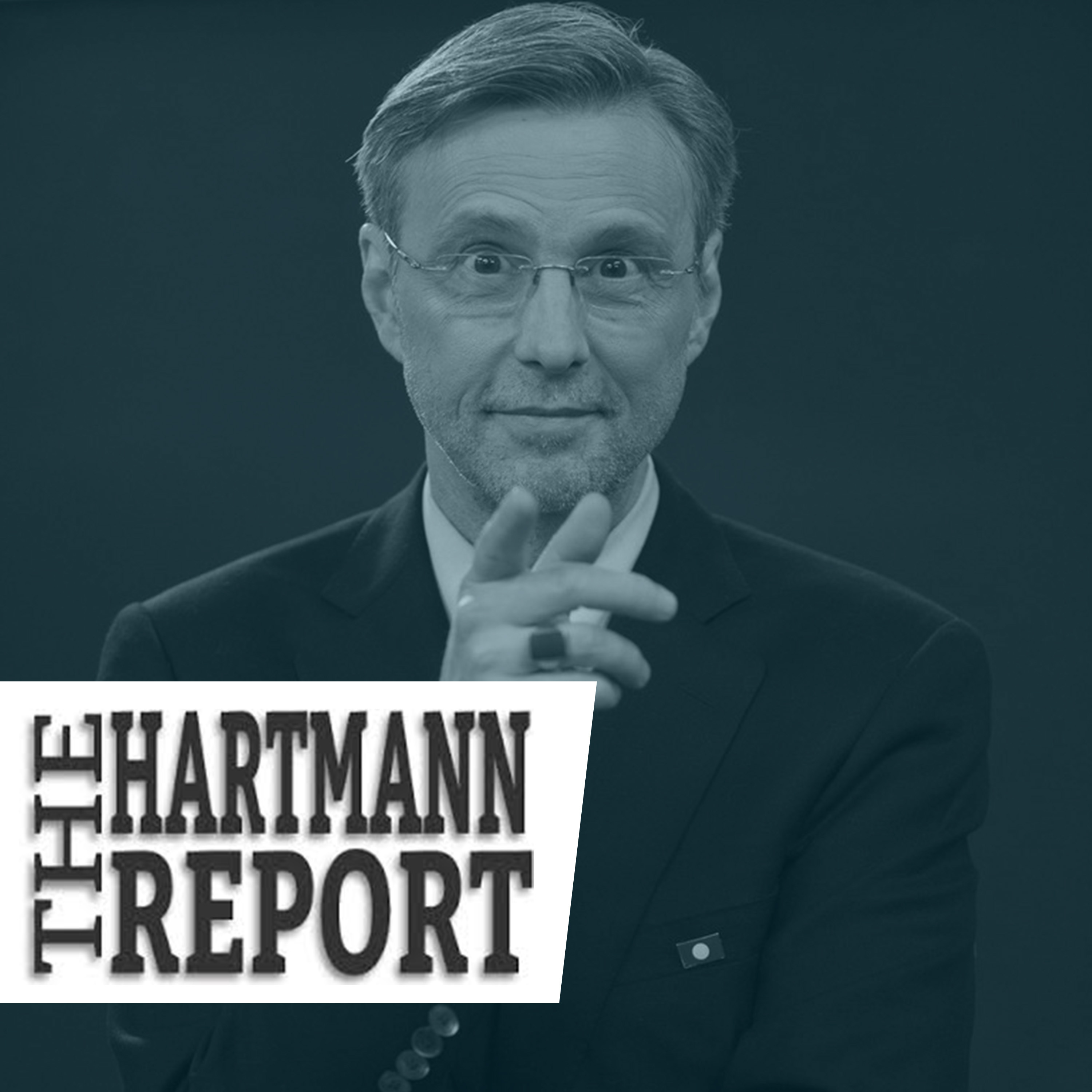
The Hartmann Report
Thom Hartmann
The Glenn Show
Glenn Loury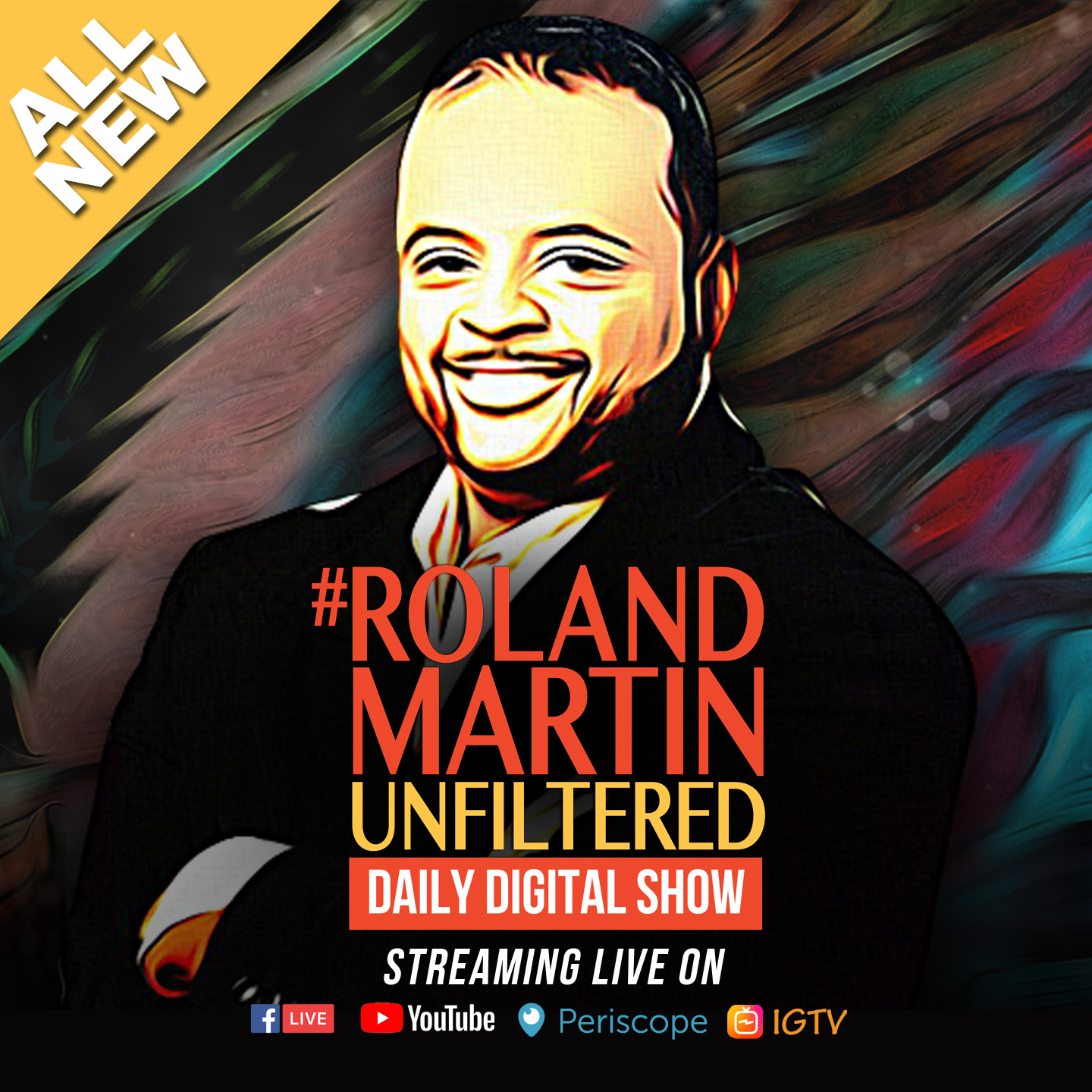
#RolandMartinUnfiltered
Roland S. Martin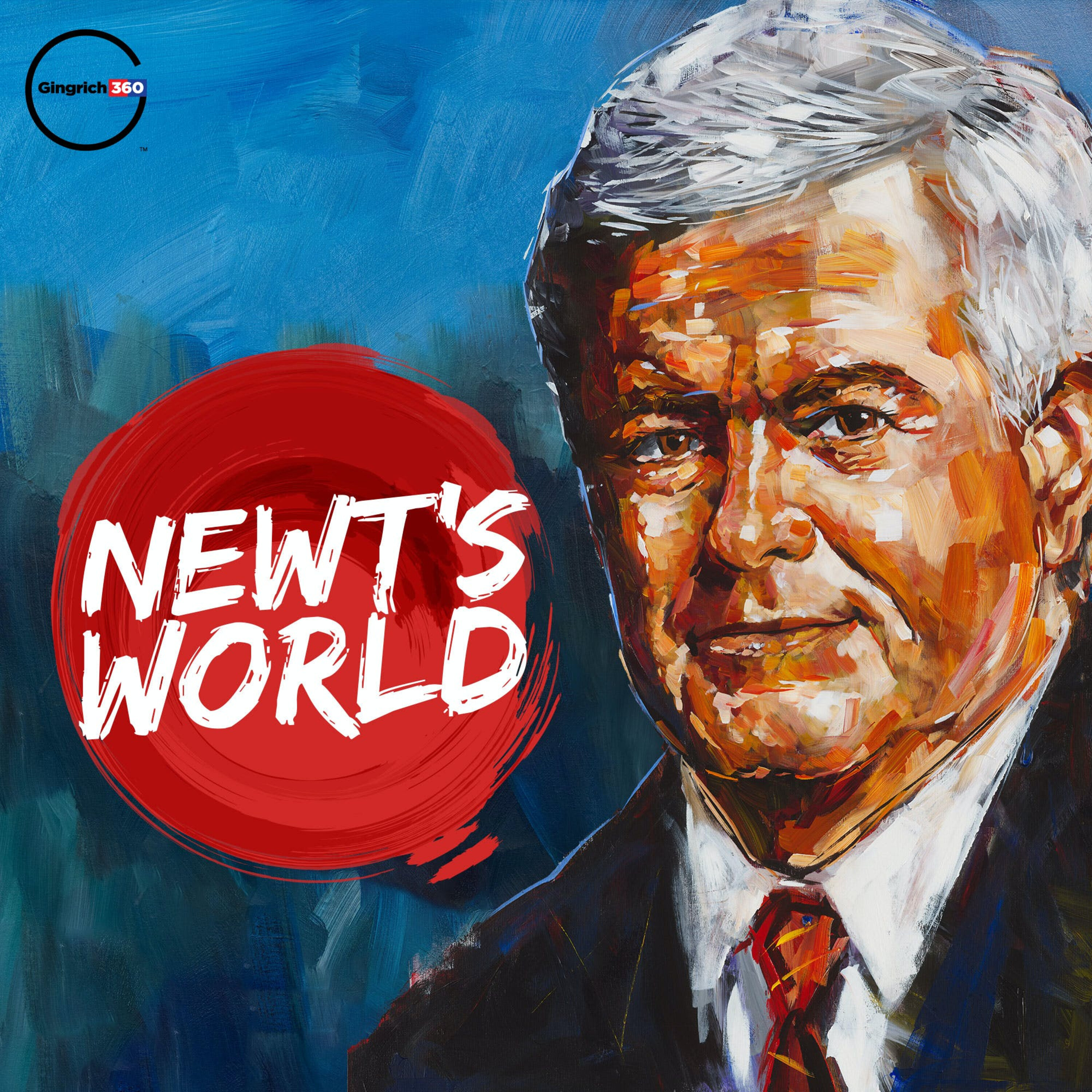
Newt's World
Gingrich 360
Pod Save America
Crooked Media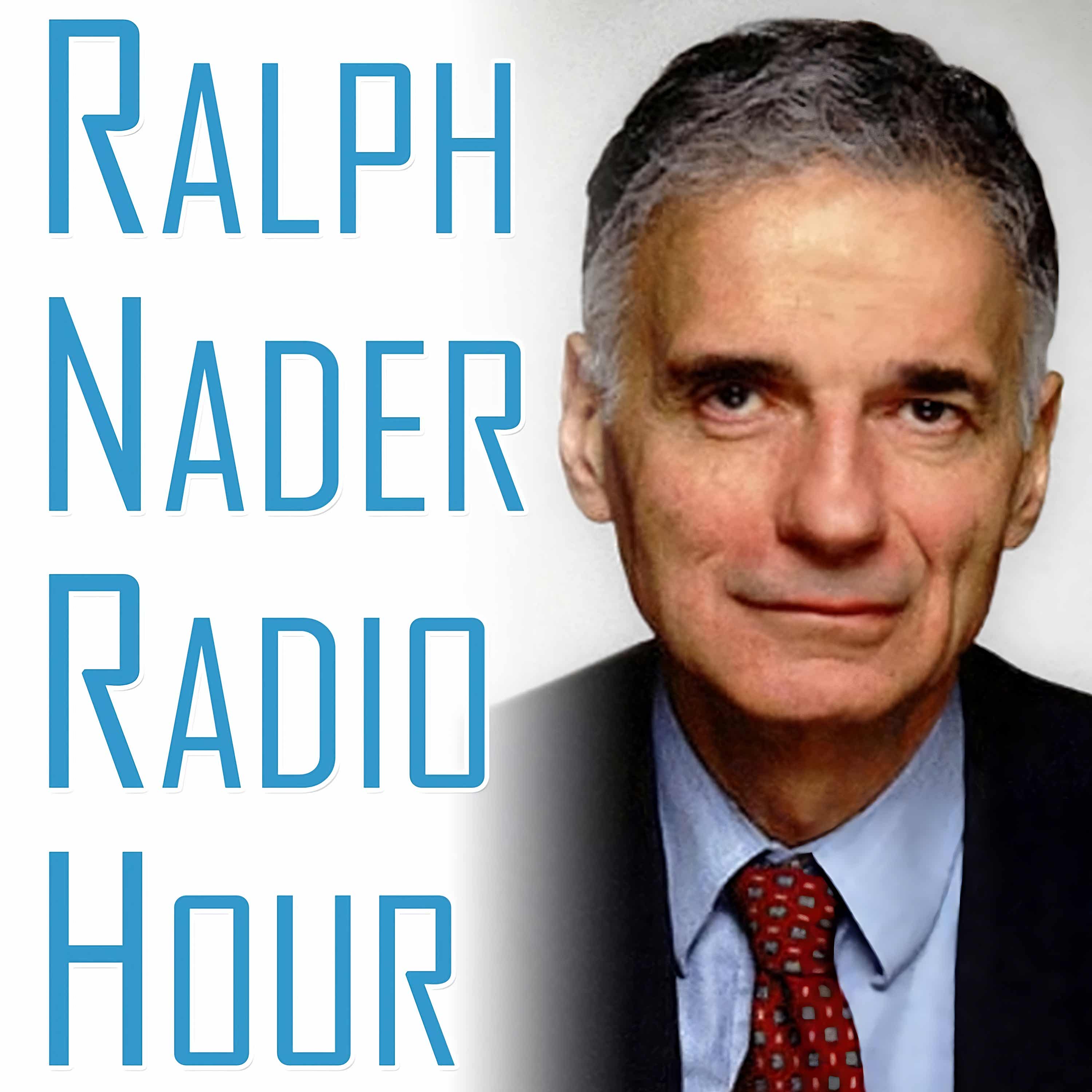
Ralph Nader Radio Hour
Ralph Nader
Bannon`s War Room
WarRoom.org
Bannon’s War Room
dan fleuette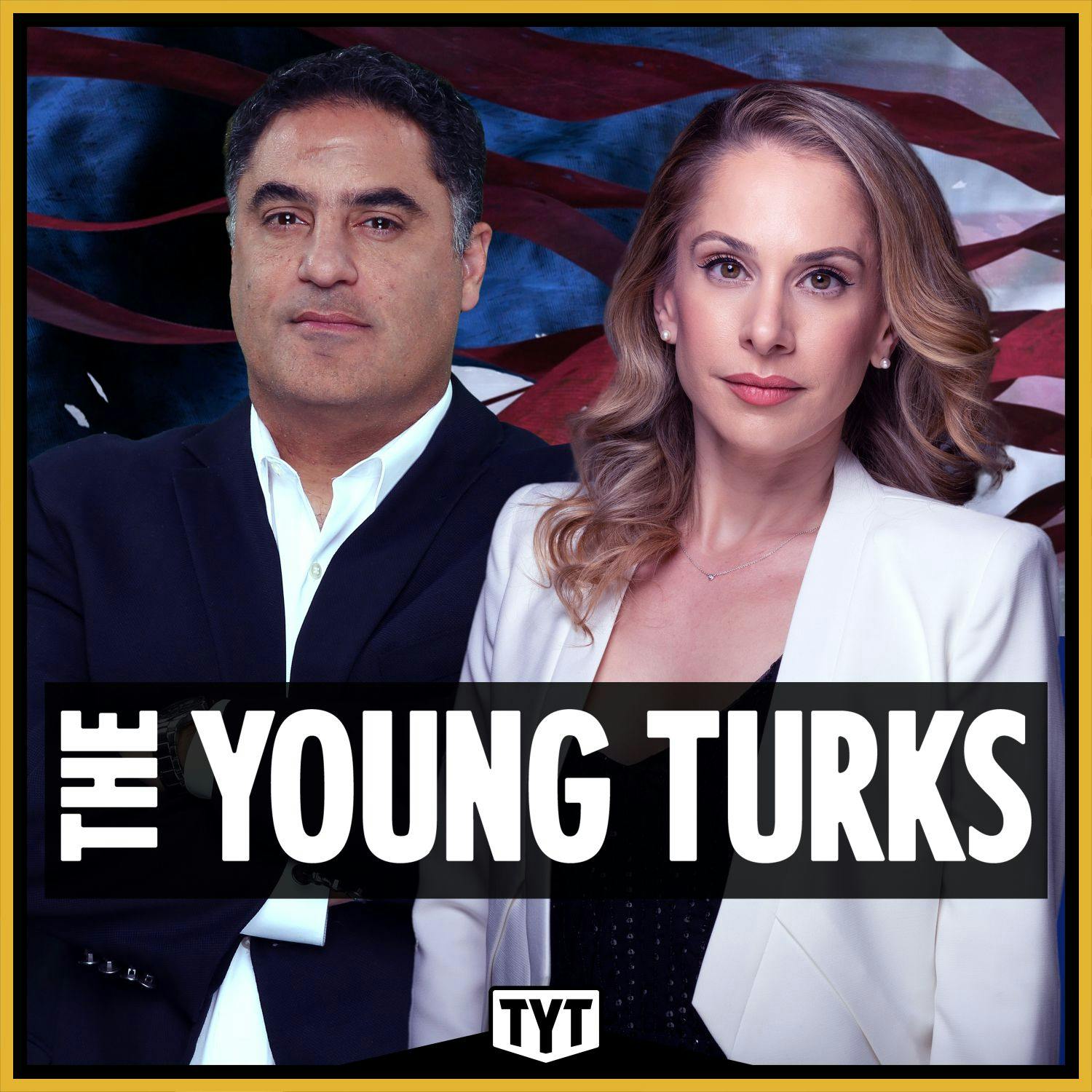
The Young Turks
TYT Network
The Beat with Ari Melber
Ari Melber, MSNBC
The Damage Report with John Iadarola
TYT Network
The Majority Report with Sam Seder
Sam Seder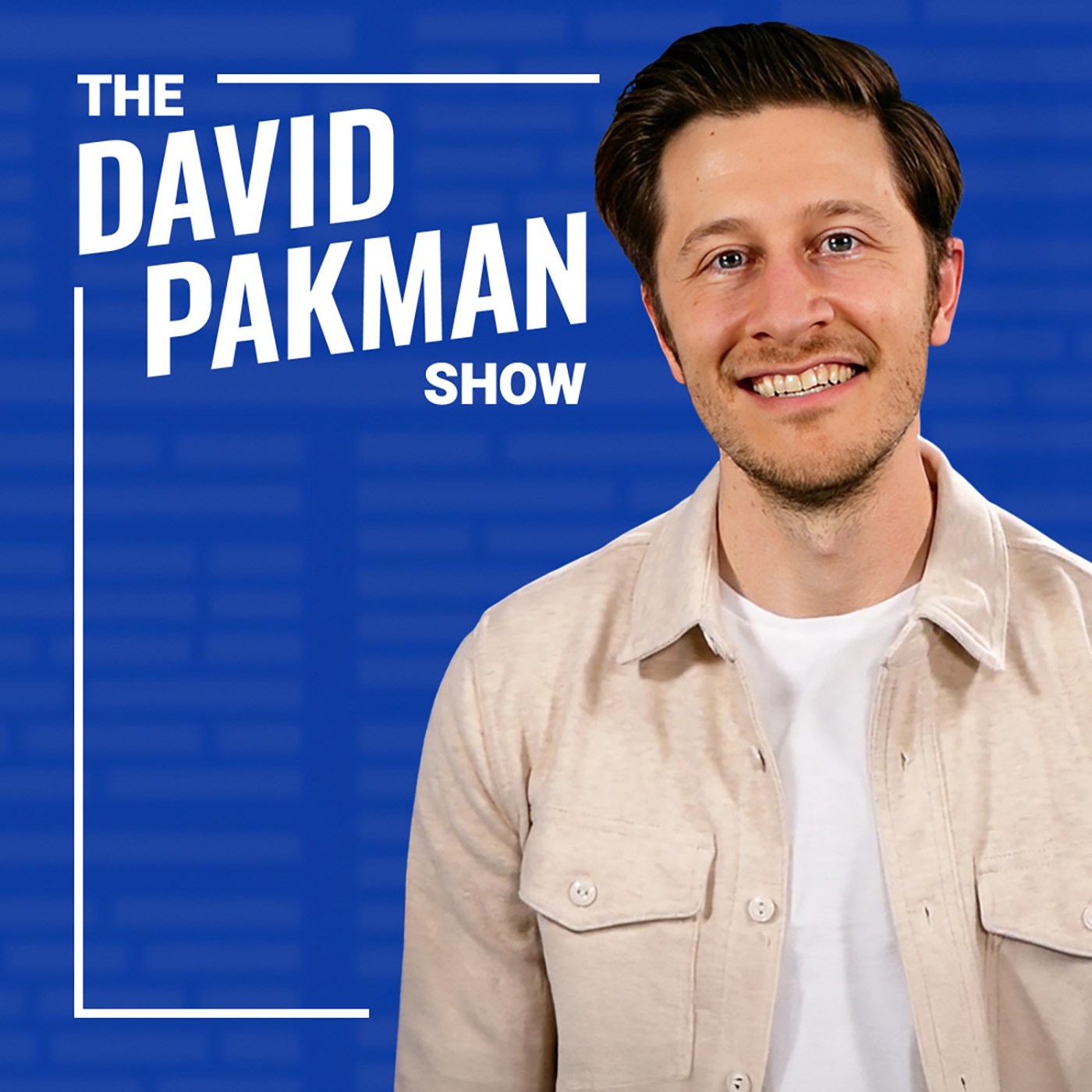
The David Pakman Show
David PakmanGet A Grip with Kendall Reusing
Kendall Reusing
Ultimately with R.C. Sproul
Ligonier Ministries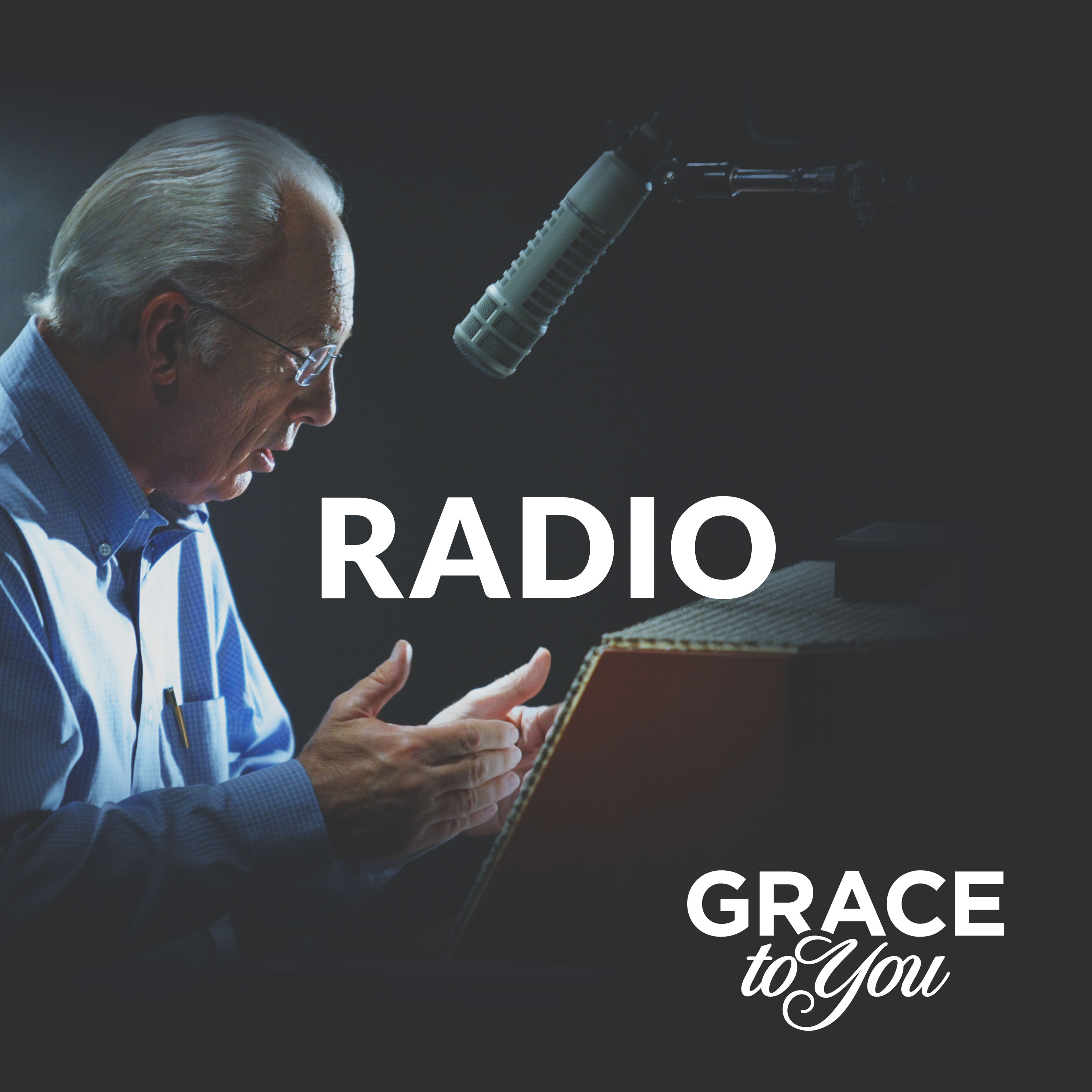
Grace to You: Radio Podcast
John MacArthur
The Briefing with Albert Mohler
R. Albert Mohler, Jr.
StarTalk Radio
Neil deGrasse Tyson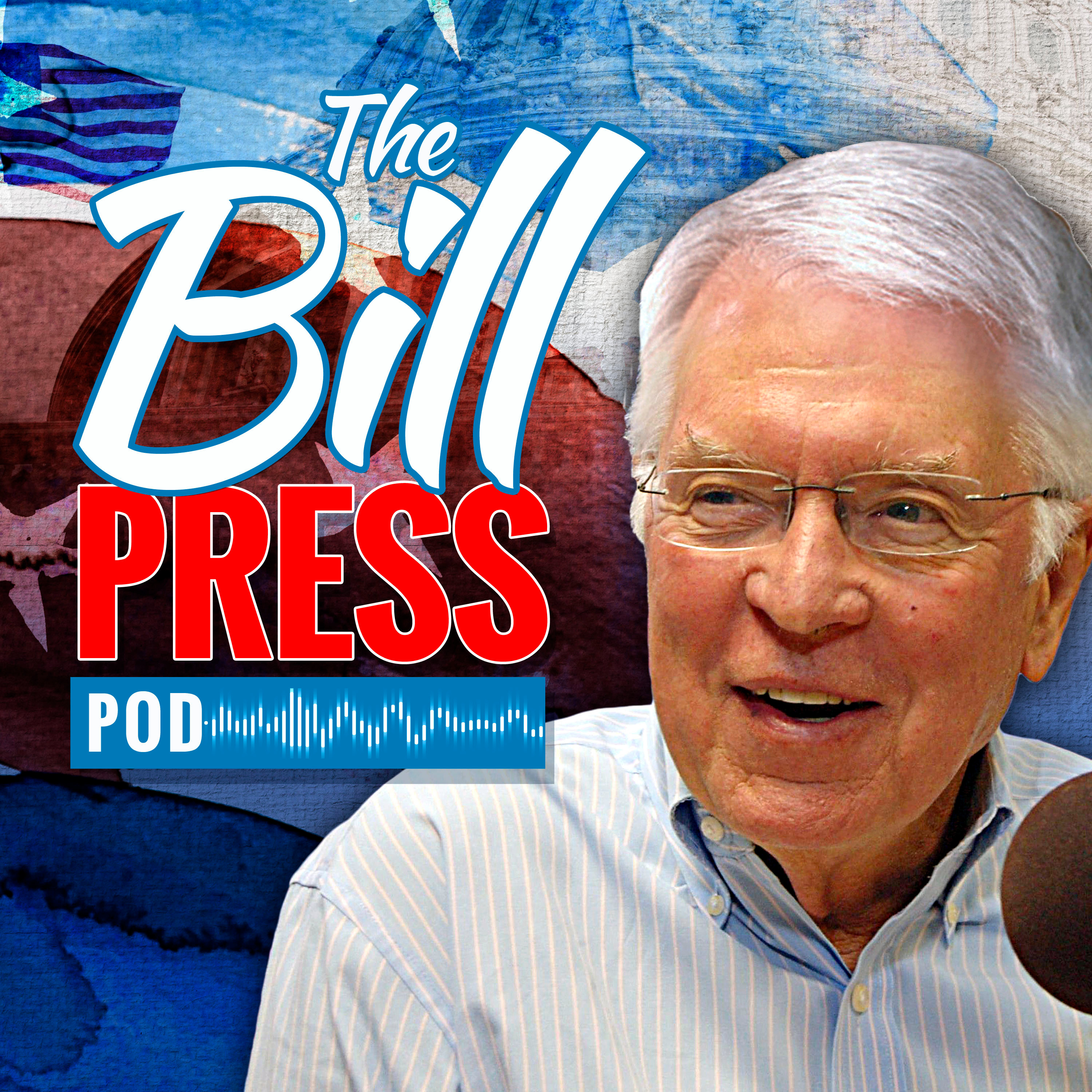
The Bill Press Pod
BP Pods
Ask Pastor John
Desiring God
The Weekly Show with Jon Stewart
Comedy Central
Ask Ligonier
Ligonier Ministries
Lost Debate
The Branch
Coffee-Time-Again
Dale Hutchinson
5 Minutes in Church History with Stephen Nichols
Ligonier Ministries
The Ezra Klein Show
New York Times Opinion
Why Is This Happening? The Chris Hayes Podcast
Chris Hayes, MSNBC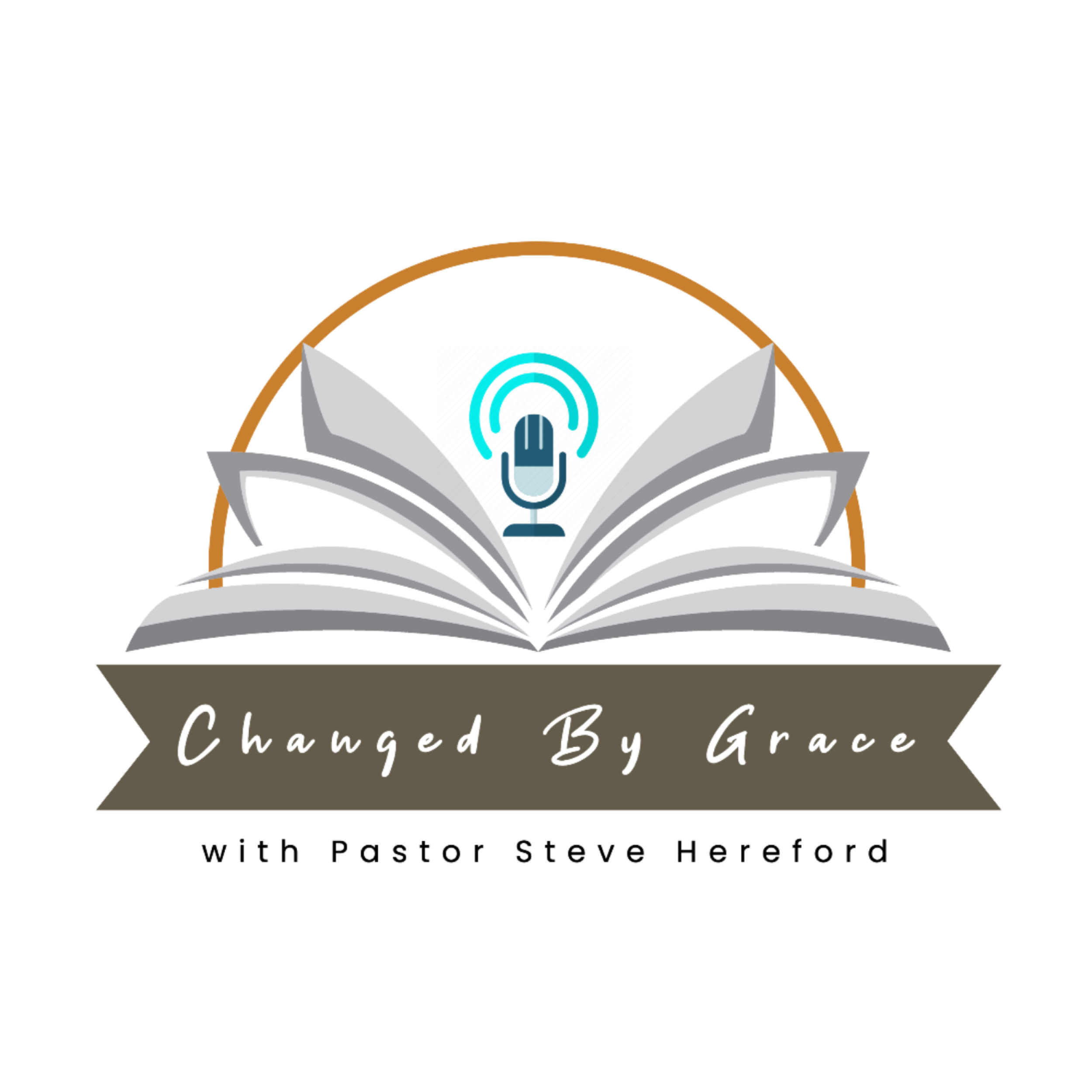
Changed By Grace
Dr. Steve Hereford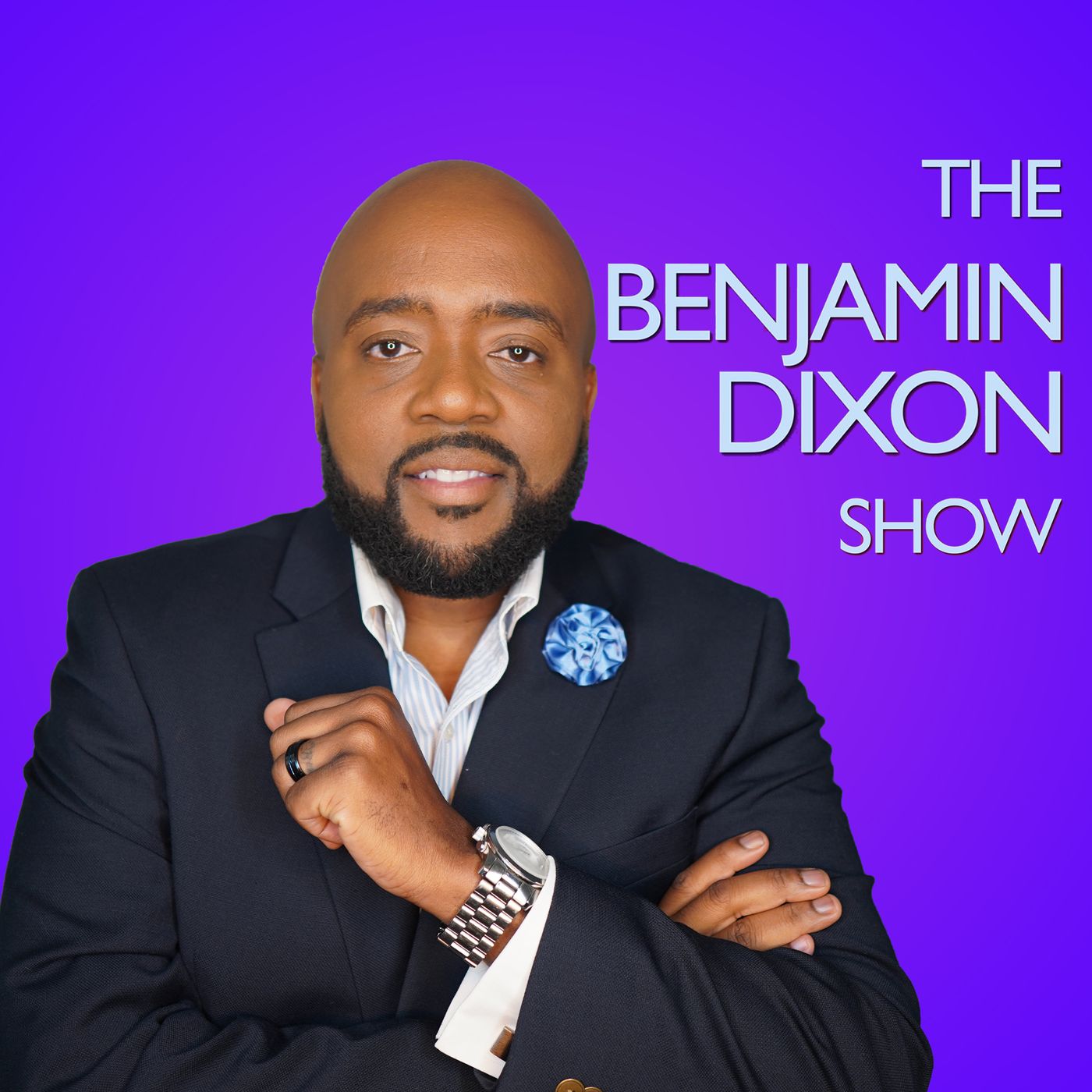
The Benjamin Dixon Show
The Benjamin Dixon Show
Thinking in Public with Albert Mohler
R. Albert Mohler, Jr.
Who Killed JFK?
iHeartPodcastsThe MacArthur Center Podcast
The Master's Seminary
Jean Jacques Machado : No Gi Required
Jay Zeballos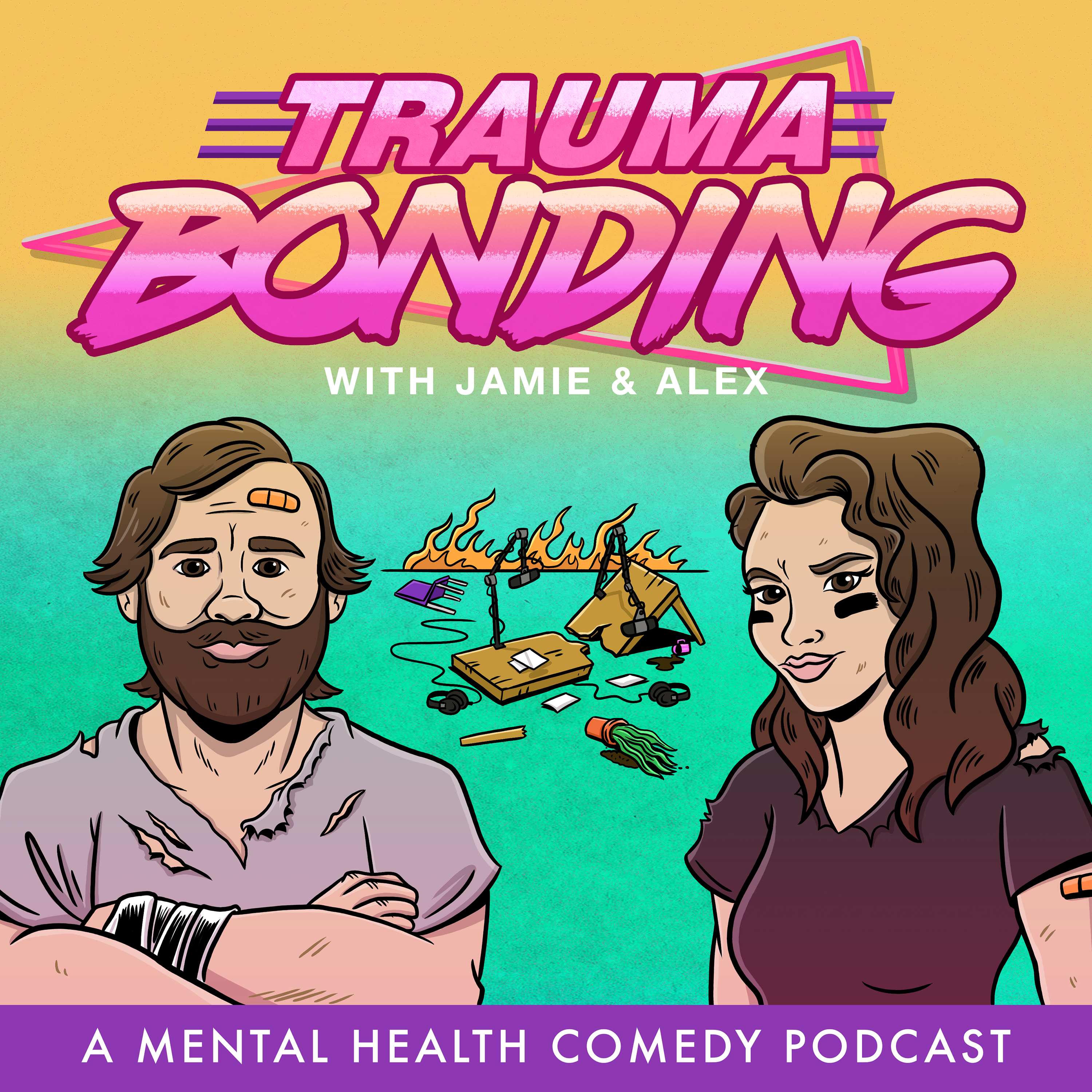
Trauma Bonding
Jamie Kilstein
This Day in History
The HISTORY Channel
The Ben Shapiro Show
The Daily Wire
The Sean Hannity Show
Sean Hannity
Breaking Points with Krystal and Saagar
iHeartPodcasts
The Kyle Kulinski Show
Kyle Kulinski